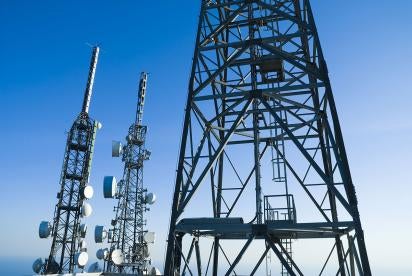After nearly three decades representing property owners on cell tower leases, I’ve seen property values helped and harmed, terms that empowered or restricted, and deals that left the property owner pleased or later regretful. While the intricacies of cell tower leases should be left to professionals, I’ve assembled a shortlist of do’s and don’ts for property owners to keep in mind.
-
At present, your lease is worth approximately nineteen times annual revenue – conduct your business accordingly. Move slowly, act cautiously, do your homework and do not get scared or act out of fear based on what a salesperson or “lease consultant” may tell you.
-
If you are going to sell property with a cell tower lease, sell the lease and future leasing rights before selling the property. The sale of the cell lease will add dollar for dollar to the revenue you would gain from selling the property. To put it simply, you’re leaving large amounts of money (see number one above) on the table if you sell the cell lease along with the property.
-
A related option is selling the property but keeping the cell lease. In addition to receiving rent, you maintain the ability to sell the lease in the future. While this is a good option, it is also tricky and should be navigated by an attorney with a successful track record.
-
Despite demands for you to do so, do not renew more than a year or so prior to lease expiration. Warnings about the cell company leaving or refusing to upgrade are generally bogus, so wait it out. Rent offers go up substantially the closer you get to expiration.
-
Most of the people contacting you about renewing or modifying your lease are paid on commission and thus will utilize high-pressure sales tactics to talk you into a decision you’ll regret. For example:
-
There are not too many cell towers in your area, and any threats that yours may go away are simply not true.
-
Cell phones are not going to be replaced by new technology because it doesn’t exist. Satellite technology is for countries and areas without cell service.
-
Major carriers including AT&T and Verizon recently began rolling out 5G cell service. While sales representatives may tell you otherwise, this does not remove the need for existing cell towers.
-
-
When negotiating terms, try to require a lease amendment for any material change to a cell tower site. This is particularly important for antennas on buildings, so the building is protected. Each amendment may also lead to a rent increase, which is why cell companies try to strike such provisions and why you should keep them.
-
You hold more of the cards in the lease renewal process than you think. In these circumstances, a cell company may threaten to take down a cell tower and move to a new location. Realistically, their whole network is built around having a cell tower at your location. Building a new one would come at a significant expense and would have to be nearby to avoid coverage gaps. Remember: if fear is what they’re selling, don’t buy.
-
When amending or renewing a lease, pay attention to the fine print, as it is typically intended to help them and hurt you. Don’t be afraid to ask for the lease changes you want.
-
In case it wasn’t clear in number eight, read the fine print. Do not sign leases or amendments stating the installation and area you are leasing will be determined after the lease is signed by a survey conducted solely by the cell company. You wouldn’t buy a house that way! The seller should have decision-making power.
-
Strike rights of first refusal or greatly limit them. Because the person who will pay the most to buy a cell site is oftentimes the current tenant under the lease, do not let them buy on the cheap by matching the offer from what would have been the second highest bidder. If there is a right of first refusal, it should not apply to sales involving relatives, affiliates, trusts, estates and the like.





 />i
/>i

